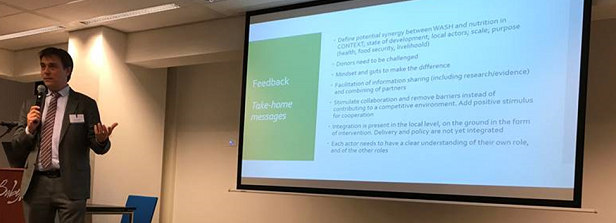policy development

January 21, 2019Knowledge activity
Is linking WASH and nutrition the new math?
Theme: Nutrition Security
